Agencies touting the services of foreign domestic workers in Singapore have come under fire for exploitation, but change has come slowly.
The women behind the glass windows fold and unfold sheets and duvet covers. Clad in light blue polo shirts and red aprons, they make up a double bed and iron clothes for no one in particular. One uniformed woman stands by the entrance, changing a diaper on a baby doll. A sign above her head reads “UNITED CHANNEL” in bold blue letters. A yellow banner beside her boasts, “We specialise in Myanmar maids! … CUSTOMISED TRAINING.”
Singapore is by far Southeast Asia’s richest metropolis. Modern, stable, and with a strong currency, the city state is an attractive destination for migrant workers from neighboring countries. Foreign domestic workers (FDWs)—often referred to here as “maids”—are the silent backbone behind many striving Singaporean and expat families, cleaning, cooking, and looking after children. Some are trained to care for people with disabilities or the elderly.
With salaries as low as S$400 (US$296) a month, live-in FDWs are far cheaper than childcare centers, homes for the aged, or even part-time cleaners. With over 218,300 FDWs working in households across the island, they have become a crutch upon which a large part of Singapore’s social welfare system rests.
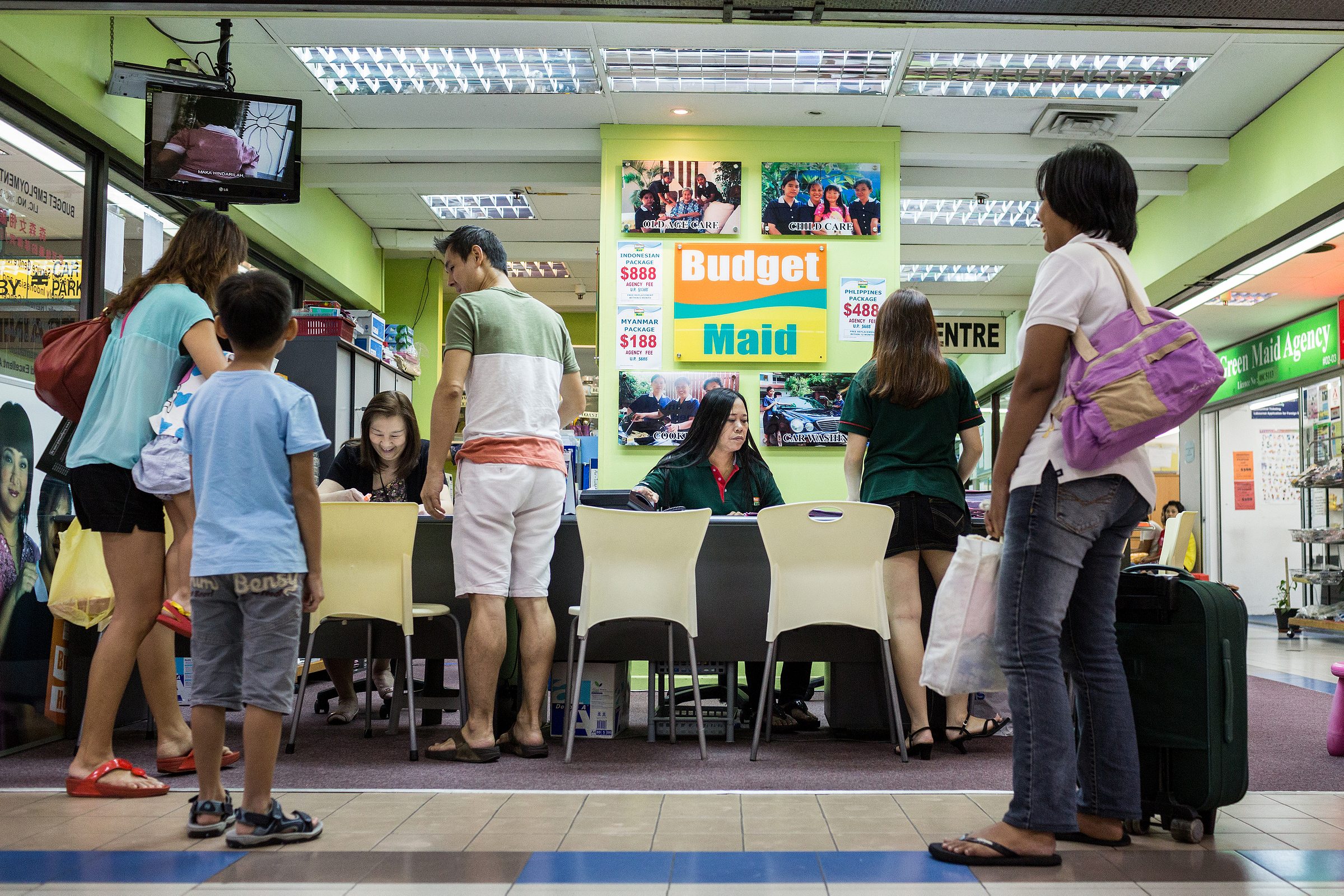
The demand for FDWs has created a transnational multimillion-dollar industry with Singapore at its center. But rules and regulations governing FDWs set them apart from other migrant workers. The way employment agencies advertise the workers and the services they provide offers a glimpse into the psyche of Singaporean society and how FDWs are perceived here. Migrant rights activists have railed against live displays and demeaning advertisements for years, but change seems to be slow in coming.
Even the names of many agencies suggests that domestic workers are relegated to a lower rung of Singaporean society than the vast majority of the population. One agency in Sunshine Plaza near central Singapore is called Superservants. Another, Maids R Us, has a hastily constructed billboard outside its Katong office that says, “Y pay more when we can get you a better deal?”
Katong Shopping Centre, on the eastern part of the island, is home to dozens of employment agencies. There’s United Channel, with uniformed recruits undergoing in-house training. There’s Labour Express, Home Maid, Express Maids, Top Maid, and 24×7 Maids. The agencies are lined up one after another, attracting customers with bright banners and neon signs.
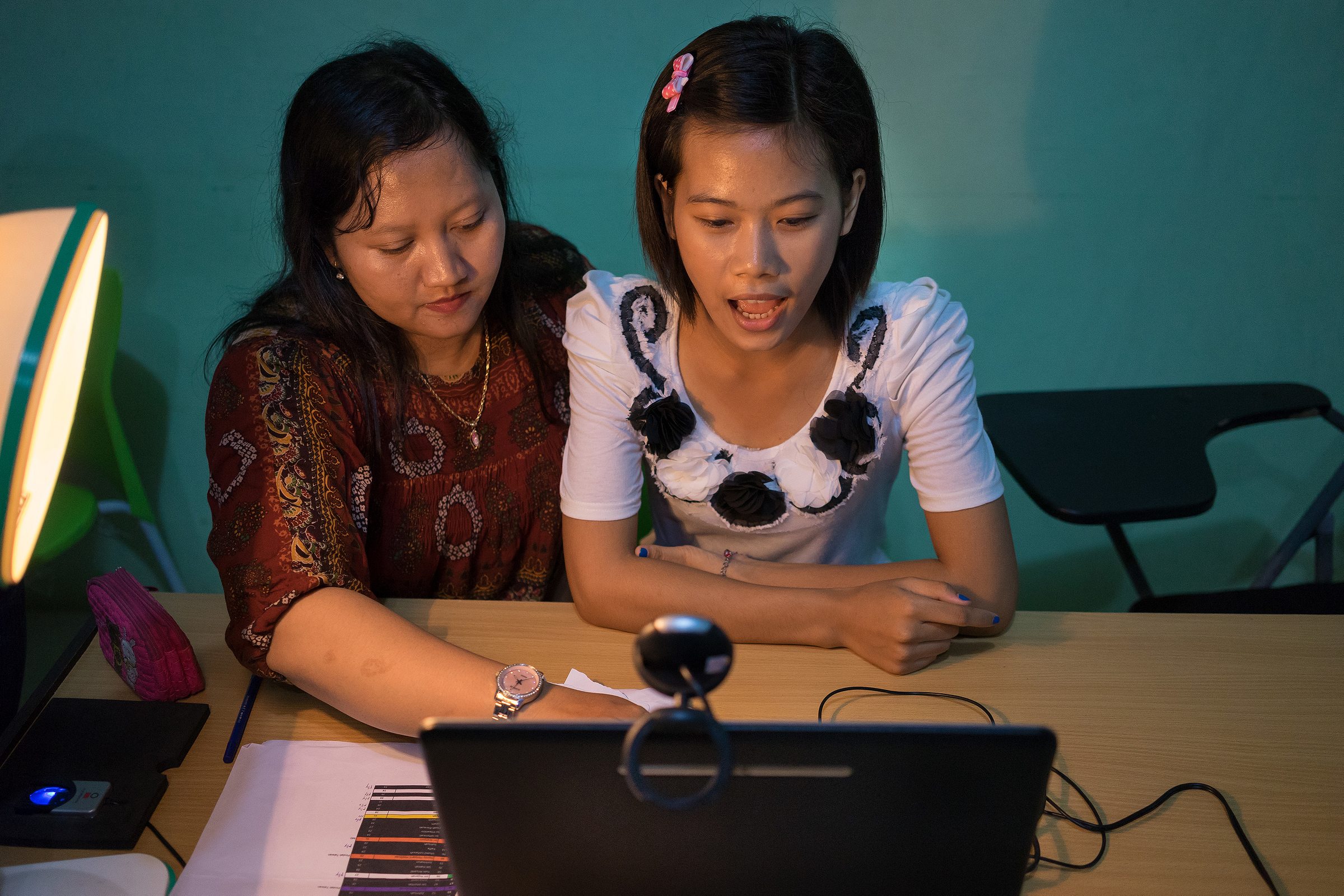
Employers are given the choice between experienced or “fresh” maids. Experienced workers command a higher salary, while “fresh” workers may need a little more time to learn the ropes. Nationality can also come into play. English-speaking Filipinos usually demand higher salaries, while Burmese workers are paid the least.
Agency ads are plastered all over the lift lobby. One agency even has a celebrity endorsement, a well-known Singaporean actress beaming at passers-by, her hands lightly placed on the shoulders of a domestic worker. “Good efficiency, few worries!” the ad reads in Mandarin.
Silent women sit in a line against the wall in many of these agencies, watching and waiting.
This situation, so common as to be considered normal for many agencies, has been criticized for dehumanizing the workers. “These women are treated as commodities and put on ‘display’ for potential walk-in employers into the agencies,” says Shelley Thio, a migrant rights activist who has worked with FDWs.
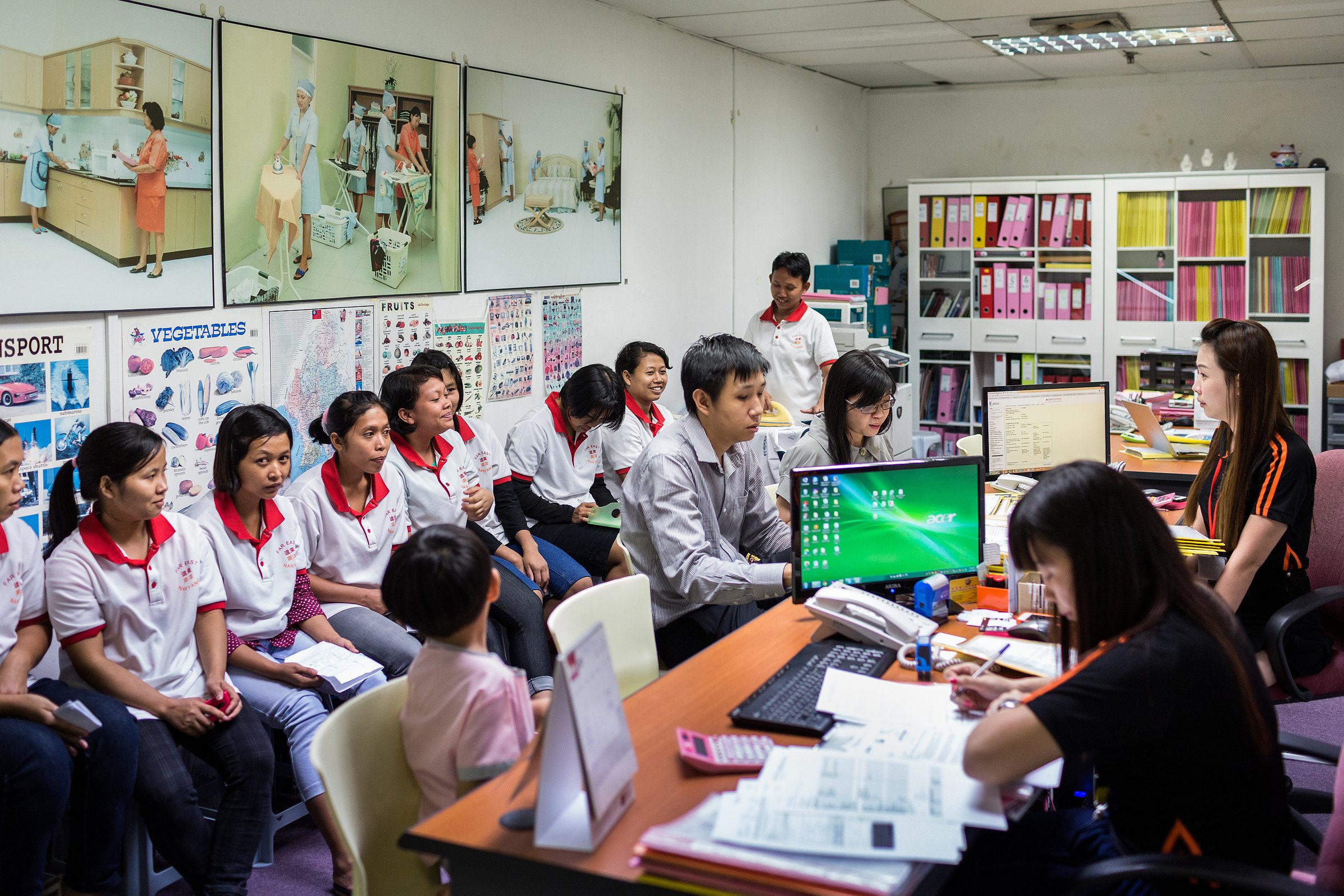
May (not her real name) came to Singapore through United Channel in 2010, and spent four days with the agency before moving into her employers’ home. While with the agency, she spent her days at the mall, going through the motions of ironing and cleaning. “We had to do it again and again, so people can see that we’re good helpers. We had to show that we were working,” she tells me during a phone interview.
Migrant rights groups have complained about such treatment, saying that in-house or “live” training turns human beings into products to be traded and sold. Jolovan Wham, the executive director of the Humanitarian Organisation for Migration Economics (HOME), says he filed complaints against United Channel’s practices to the Ministry of Manpower, but never heard back.
Following an Al Jazeera English article last year, both the Association of Employment Agencies (Singapore) and the Ministry of Manpower said they had not observed anything inappropriate in malls such as Katong Shopping Centre. A ministry spokesperson noted that “it is not unreasonable for FDWs to be performing such chores at the employment agency’s premises.”
Many women find good employment in Singapore, and some have remained for many years. The work provides them with a steady income to send home. These remittances support both families and national economies like the Philippines, where personal remittances formed 9.8 percent of the country’s revenue in 2013.
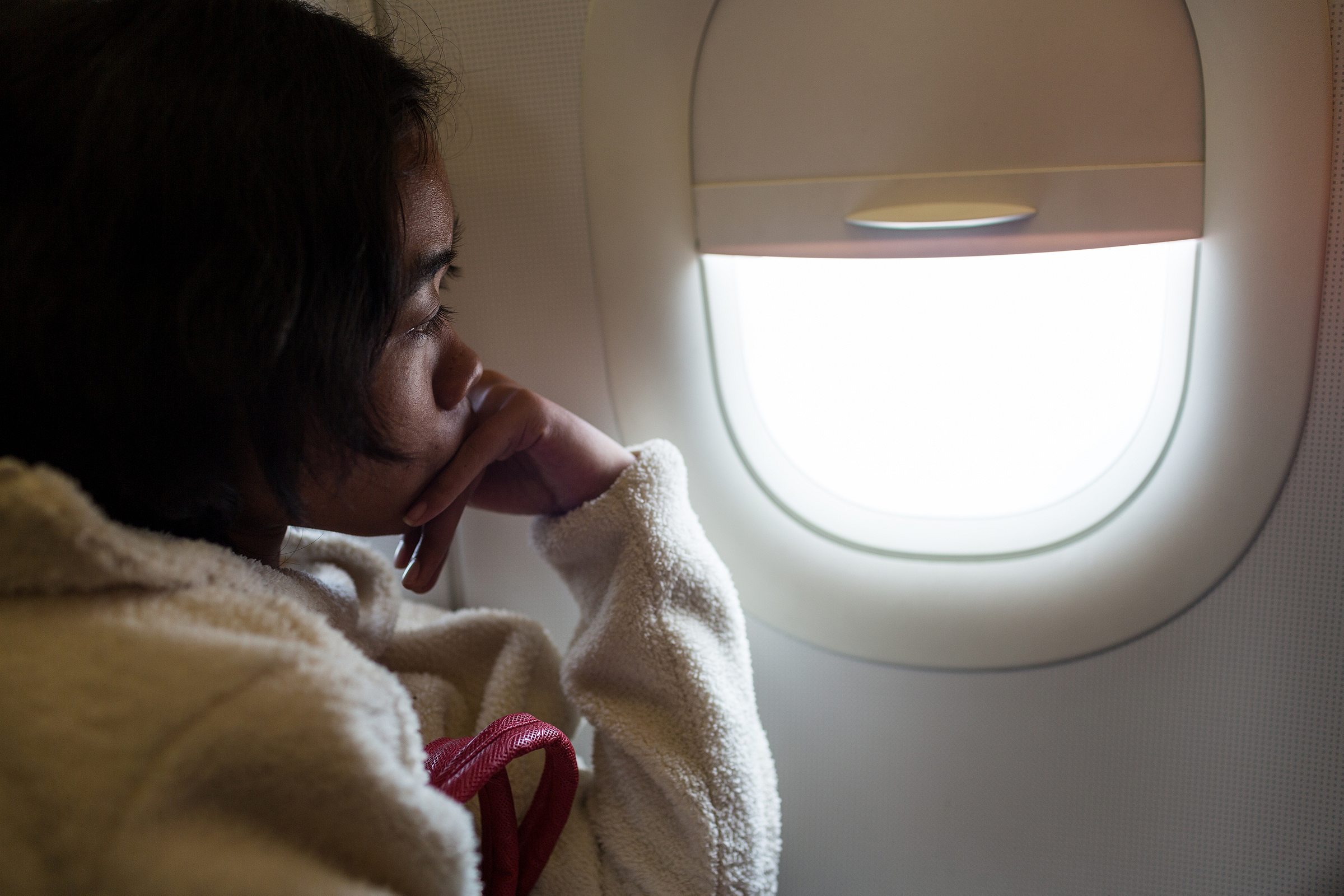
Yet Singaporeans themselves would never tolerate working under the conditions that many FDWs do, and domestic workers are excluded from the Employment Act, which regulates most other industries. The reasoning given by legislators debating the Employment Bill in 1968 was that the type of work domestic workers perform is “not amenable to regulations by ordinary labour legislation.” For example, how does one “calculate [overtime] when workers never leave the employment place?” Ministry of Manpower officials said in an interview with Human Rights Watch in 2005.
One day, I enquire about how to hire a domestic worker at United Channel, supposedly for my elderly grandmother. An agent shows me a worker’s profile and explains the process: how to complete the paperwork; the course that all first-time employers must take; and how to interview potential employees. At the top of the second page of the profile is the preferred number of rest days: four a month. Then came her wage at about S$540 a month, and her loan—the fee each worker is required to pay for her training—at over S$2,000.
“This S$540 is without days off,” the agent says, her finger resting over the line about rest days. “They are okay not to have a day off, if they are taking care of elderly. They don’t need to have a day off until they finish paying their loan.” The loan would be paid off through salary deductions over the course of eight months. In that time, the worker will earn less than S$200 a month.
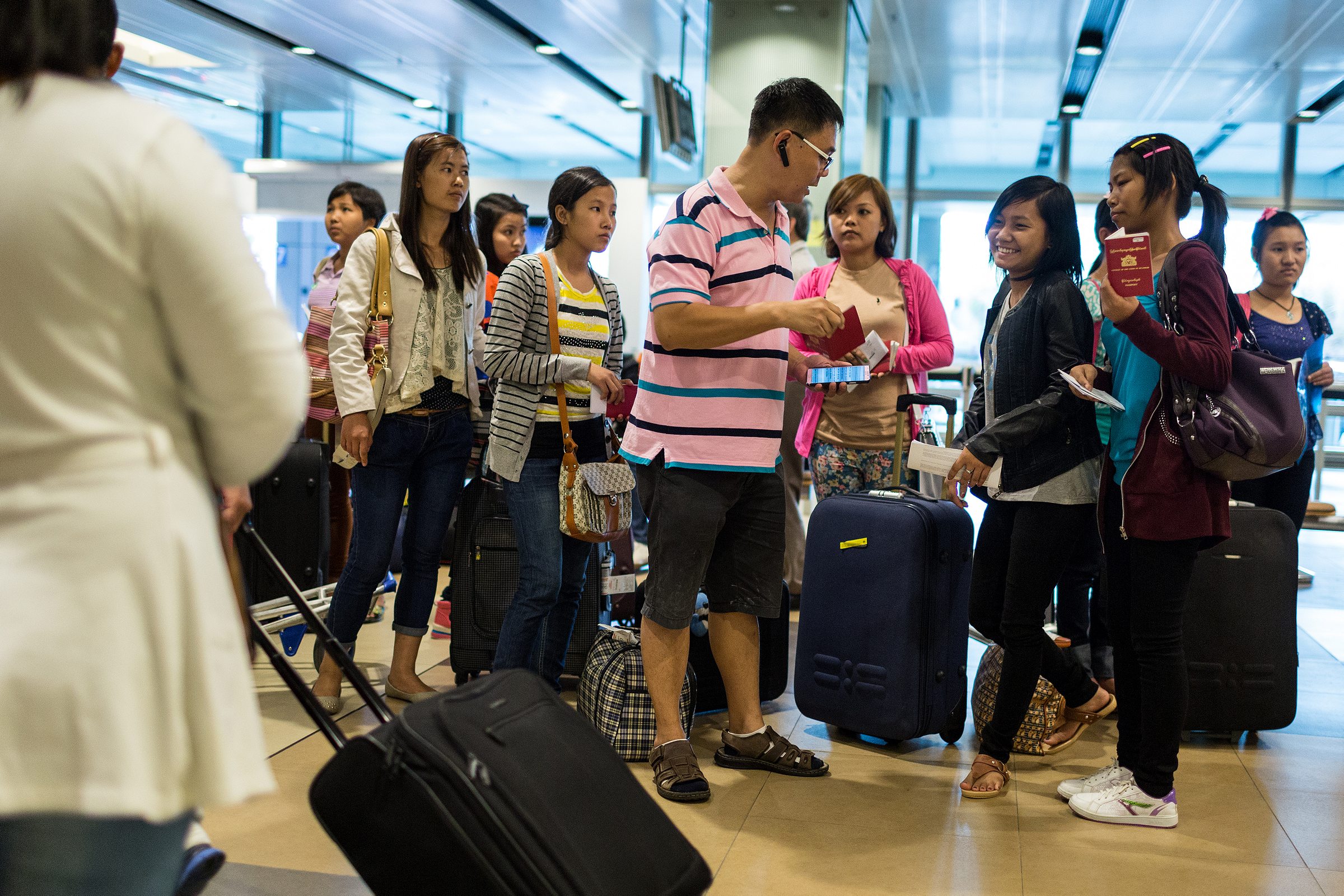
As of 2013, the Singapore government requires all FDWs to be given a weekly day off, the culmination of a lengthy campaign by migrant labour groups. The sheer fact that this was a matter of controversy, attracting strong backlash from some employers, is telling of the way FDWs are perceived in Singapore.
But problems remain, even with regulation in place. What the agent tells me seems at odds with the government’s requirements. Thio explains the disconnect: “It’s difficult to ascertain whether what the agency said is legal or not, because of the exception in the mandatory weekly day off which provides employers the flexibility to compensate their FDWs with extra pay if the FDW agrees to work on their rest day.”
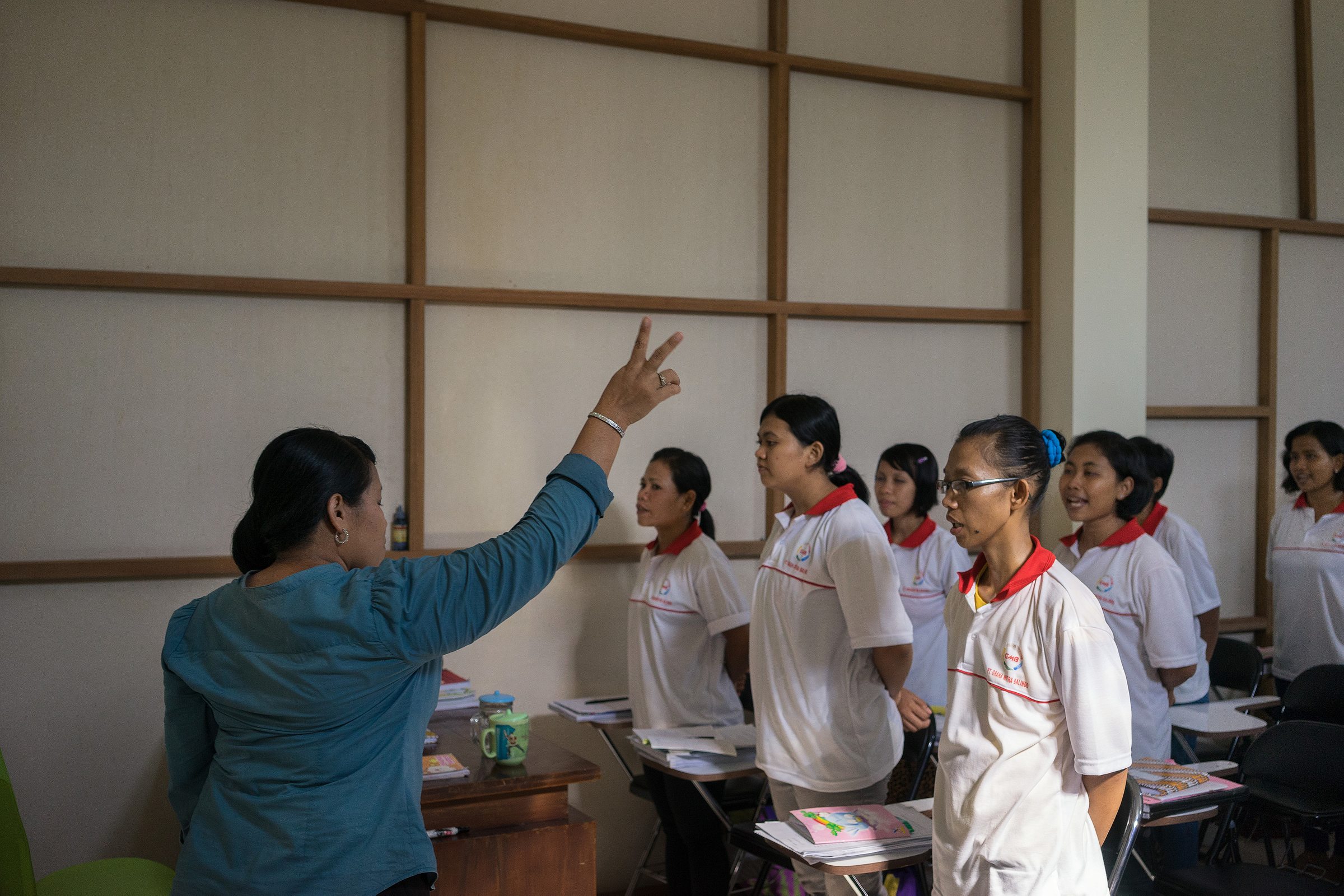
Some employers and agencies have taken advantage of this loophole, adding a token amount to the worker’s monthly salary in lieu of their rest days. Disempowered and intimidated, many FDWs lack the ability to protest, and have little choice but to forgo the rest days due them.
Back in the office, the women continue to iron and change nappies as the agent leads me through the list of agency fees. When I ask why they’re doing all this in a mall, the agent explains that it’s part of their training, to ensure they can do basic household tasks.
According to May, the agency also provides training outside of their public premises. But there are more complaints, too: lodging for new arrivals leaves much to be desired. “They treat us like slaves,” she says bluntly. “We had to share one pillow between three girls, sleeping on the floor without blankets.”
Despite emails and calls, United Channel has yet to respond to these allegations.
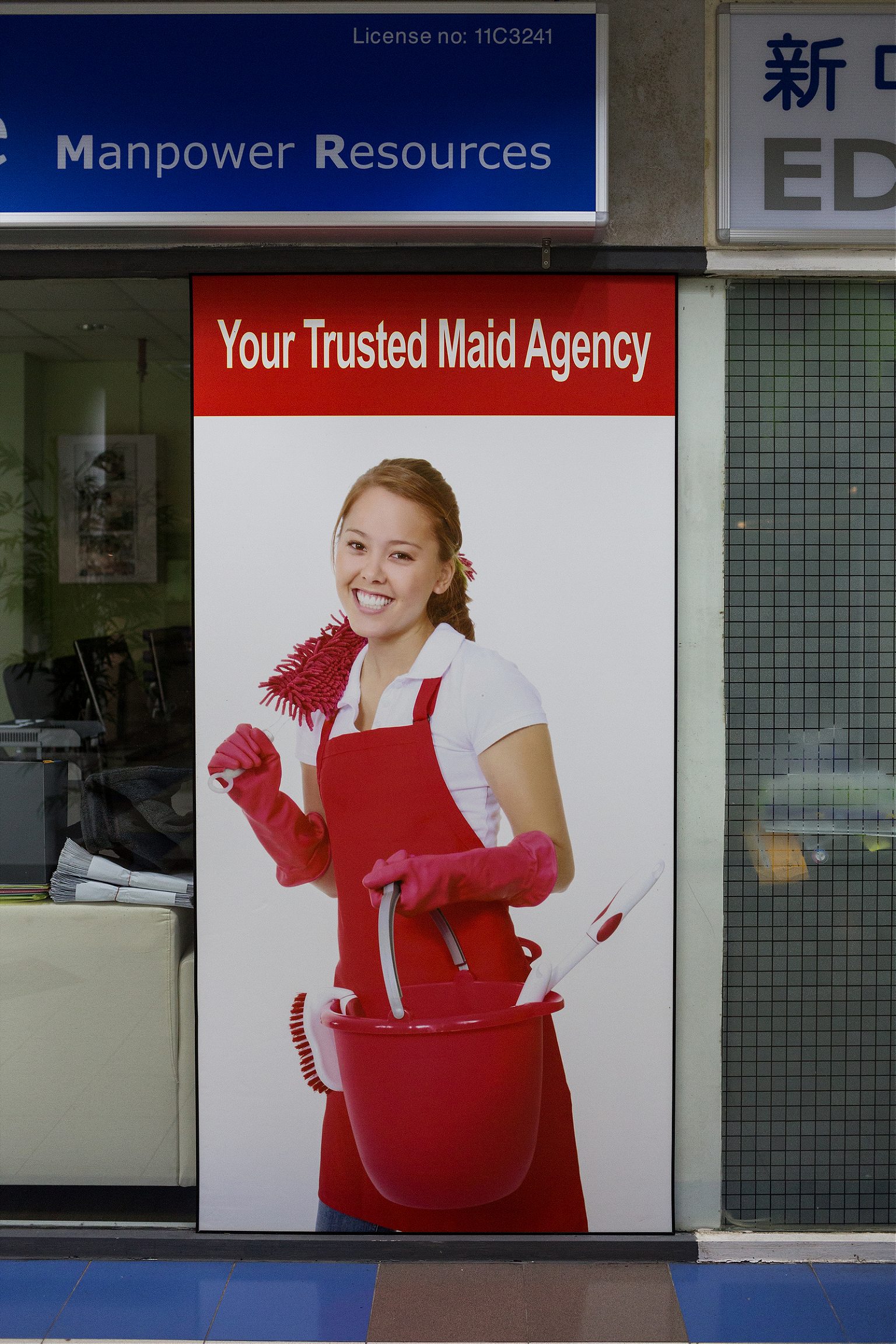
The women stop for a break just as I’m leaving, and sit clustered on the floor by a desk. The women hug their knees and look up at the television screen hanging from the ceiling. An agency staff member fiddles with a remote control at her desk.
I stop just outside, curious to see what they’re watching. It’s Disney’s 1950 animated film, Cinderella.
One might argue that Cinderella is a story of hope; the bullied, put-upon domestic worker triumphant at last. But there’s no Disney prince in Singapore, and nothing a domestic worker can do even if there is—every foreign domestic worker is required to sign a list of conditions, including one stating that she will not fall pregnant while working in Singapore. If she does, she has to choose between abortion or repatriation. As work permit holders, they have to seek permission from the authorities should they want to marry. Failing to do so will also result in repatriation.
It all adds up to a strange mix of opportunity and exploitation, needs met and trade-offs made. Where, like a modern-day episode of Downton Abbey, there are “upstairs” people and “downstairs” people for whom different standards apply.
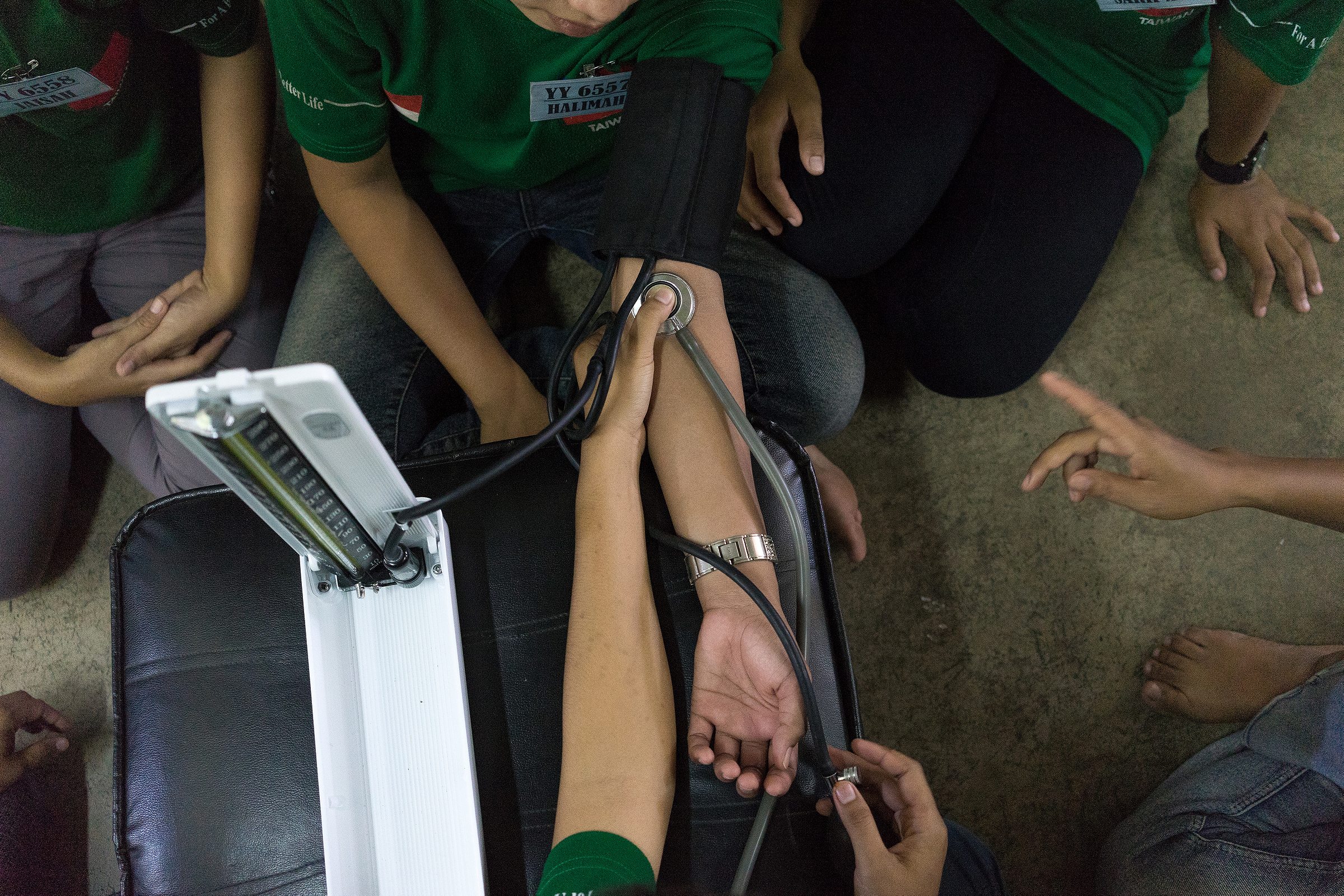
Thankfully, there are happy stories to found within the general culture of commodified human labor. May has now been working with the same employers for four years, and is happy. She hopes to stay with this family for as long as she can. “But even if they’re not good, I don’t want to go back to this agency!” she says. “I’d rather go back to the Philippines.”
Ruom is a collective of photographers, journalists, videographers, and researchers, drawn together by a passion for social documentary work. It is a space to collaborate on regional and international projects with the aim of giving voice to global issues that may be underreported by the mainstream media. See their full story on Indonesian migrant workers in Singapore here.